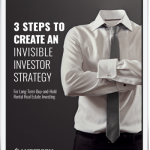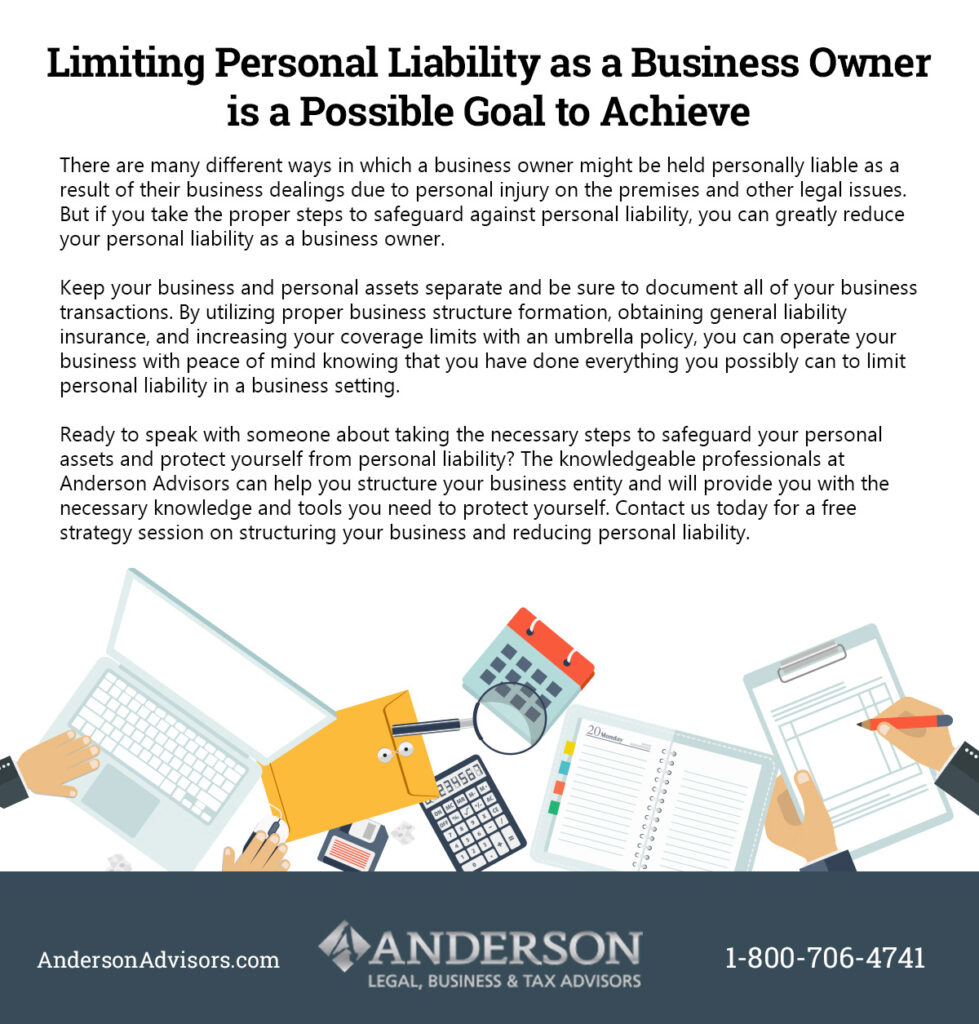Updated August 19, 2021
Owning your own business is an ideal notion which can lead to great success in any industry. Being a business owner offers many lucrative opportunities but also comes with additional responsibilities and a variety of issues. One such issue for business owners is the risk of personal liability.
8 Ways to Limit Personal Liability as a Business Owner
- Structure the Business as an LLC
- Structure the Business as an S-Corporation
- Obtain General Liability Insurance
- Do Not Sign a Personal Guarantee
- Keep Your Business and Personal Assets Separate
- Document All Business Actions
- Maintain Complete Financial Records
- Consult a Legal Advisor
Personal liability is when damage or an accident occurs in the operation of one’s business, such as the injury of a patron, and the individual business owner is held liable for damages or responsible for the payment. Whether you have a brick-and-mortar location or operate a home-based business, personal liability is an important issue to consider.
Business ownership is something that should always be pursued with the idea of potential personal liability in mind. However, as a business owner, you shouldn’t have to fear personal liability issues on a daily basis since there are ways to protect yourself from the possibility of a personal liability claim. If you take the necessary steps to limit personal liability, you can feel safe and confident in your daily business dealings as a business owner.
There are many ways to limit personal liability so that you may operate your business without the fear of lawsuits taking everything you own. Here are some of the ways to limit personal liability as a business owner.
1. Structure the Business as an LLC
One of the initial ways to limit the possibility of personal liability is to structure the business as a limited liability company (LLC). An LLC is a business structure which protects the owners (members), managers, and the LLC itself from various types of liability. Many business owners choose to structure their business as an LLC since the requirements are less strict than structuring as a corporation and because LLCs still safeguards against certain types of personal liability.
Structuring your business as an LLC will not protect you against all types of liability, as there are exceptions, but it does provide a good deal of security. This type of business structure allows you to be a business owner without fearing automatic personal liability should any legal issues arise in the operation of your business. This is especially important for apartment complex owners and multi-family housing investors, as they see a lot of foot traffic on their property. Should a tenant experience bodily injury or claim wrongful eviction, the property owner could be held personally liable for damages. The personal liability protection offered by an LLC is beneficial to every business owner in the long run.
2. Structure the Business as an S-Corporation
Another business structure you may want to consider forming in an effort to limit personal liability is an S-corporation. The S-corporation will protect the shareholders from personal liability, with a few exceptions. When forming an S-corporation, there are more requirements to follow and the business owner must adhere to certain guidelines and processes. However, it may be an ideal business structure for a business owner to pursue if they don’t wish to form an LLC.
S-corporation personal liability issues are often less than with a sole proprietorship, where personal liability can be more likely to occur. Structuring your business as an S-corporation offers personal liability protection as one of its favorable features. If you’re willing to follow the procedures and guidelines of corporation formation and operation, then you may want to consider operating your business as an S-corporation to protect yourself as much as possible from personal liability.
3. Obtain General Liability Insurance
Another way to limit your personal liability as a business owner is to obtain general liability insurance coverage. A general liability insurance policy will provide the business owner with coverage and financial protection if the owner, the owner’s employees, products, or services cause (or allegedly cause) property damage or bodily injury to a named third party. By holding this type of coverage, the business owner has certain safeguards in place should a lawsuit arise or claims be filed against the insured person for medical bills and other expenses.
The cost of personal liability insurance varies depending on the insurance policy and coverage limits you choose. As a business owner, there are many different levels of protection available and the type of general liability insurance policy you obtain will depend on your business and the liability protection you need. The personal liability coverage required by the business owner may vary based on the type of business; thus, one business owner’s basic liability coverage may be a bit more expensive than another business owner’s liability coverage
In addition to general personal liability insurance coverage, you may want to ask your insurance company about a personal liability umbrella policy. Umbrella liability insurance offers additional coverage in the event of a liability issue that exceeds your general liability insurance coverage. In other words, the coverage will financially protect you by providing additional liability coverage, if necessary. Policy limits will vary depending on the umbrella liability policy you choose. It’s important to consult an insurance company to make sure that the personal umbrella liability limits are enough to protect you beyond basic liability.
4. Do Not Sign a Personal Guarantee
When you own a business, be careful of the documents you sign. Sometimes, signing your name on the dotted line will open you up to personal liability. When you sign loan documents for your business with a personal guarantee attached, you are stating that you will pay back the loan, even if you have to reach into your personal funds to do so.
This type of legal document makes you personally liable for all debts incurred on behalf of your business. If your business funds aren’t enough to repay the debt, the lender can come after your personal assets, even if you’ve structured your business as a corporation or LLC. It’s important to protect your personal assets and avoid signing financial legal documents’ personal guarantees on behalf of your business.
5. Keep Your Business and Personal Assets Separate
As a business owner, there may be times when it’s easy to pay for everything out of one account and not properly differentiate between personal and business spending. However, you must refrain from doing so or risk facing personal liability for business issues and debts. It’s important to use a business credit card for business expenses and an individual credit card for personal purchases.
When you commingle business and personal funds, you are combining your commercial and personal assets, which could lead to future trouble should potential liability issues arise. A business is a separate legal entity and when you allow your business and personal assets to intermingle, you are lessening the “separate legal entity” concept and blurring the lines between what is personal and what is business-related.
6. Document All Business Actions
A good way to demonstrate that your business is its own separate entity and is removed from your personal dealings is to document all of your business actions. You want to keep excellent records of business dealings, such as signed business contracts, minutes from business meetings, and documentation regarding any your business transactions.
Should the need arise, this provides you with physical evidence that your business is separate from your personal dealings. If you have well-documented paperwork regarding your multi-faceted business actions, this will make it more likely to limit the potential for personal liability as a result of your business dealings.
7. Maintain Complete Financial Records
Documentation regarding financial business dealings must also be complete and in order. All financial records which pertain to your company must be easily accessible in case you need to prove that your business is operating as a business and is separate from your personal life. Keeping copies of loan documents, paychecks, business expenses, and other documents which have been paid from set business accounts may lessen the opportunity for you to be personally liable for incidents surrounding your business.
8. Consult a Legal Advisor
One of the best ways to ensure that you are doing all that you can to limit personal liability as a business owner is to consult a legal advisor. A business lawyer or personal liability attorney will go over all possible areas in which you could open yourself up to personal liability with your business dealings. This well-versed legal professional will help you to find ways to remedy the situation so that your personal liability is greatly reduced. Your attorney will also be able to provide legal defense against any liability claims.
A legal advisor will guide you in the formation of your business structure, such as whether to choose an LLC or an S-corporation, inform you on operating your business separately, and help with other aspects of maintaining your business as a separate legal entity.
Limiting Personal Liability as a Business Owner is a Possible Goal to Achieve
There are many different ways in which a business owner might be held personally liable as a result of their business dealings due to personal injury on the premises and other legal issues. But if you take the proper steps to safeguard against personal liability, you can greatly reduce your personal liability as a business owner.
Keep your business and personal assets separate and be sure to document all of your business transactions. By utilizing proper business structure formation, obtaining general liability insurance, and increasing your coverage limits with an umbrella policy, you can operate your business with peace of mind knowing that you have done everything you possibly can to limit personal liability in a business setting.
Ready to speak with someone about taking the necessary steps to safeguard your personal assets and protect yourself from personal liability? The knowledgeable professionals at Anderson Advisors can help you structure your business entity and will provide you with the necessary knowledge and tools you need to protect yourself. Contact us for a free strategy session on structuring your business and reducing personal liability.
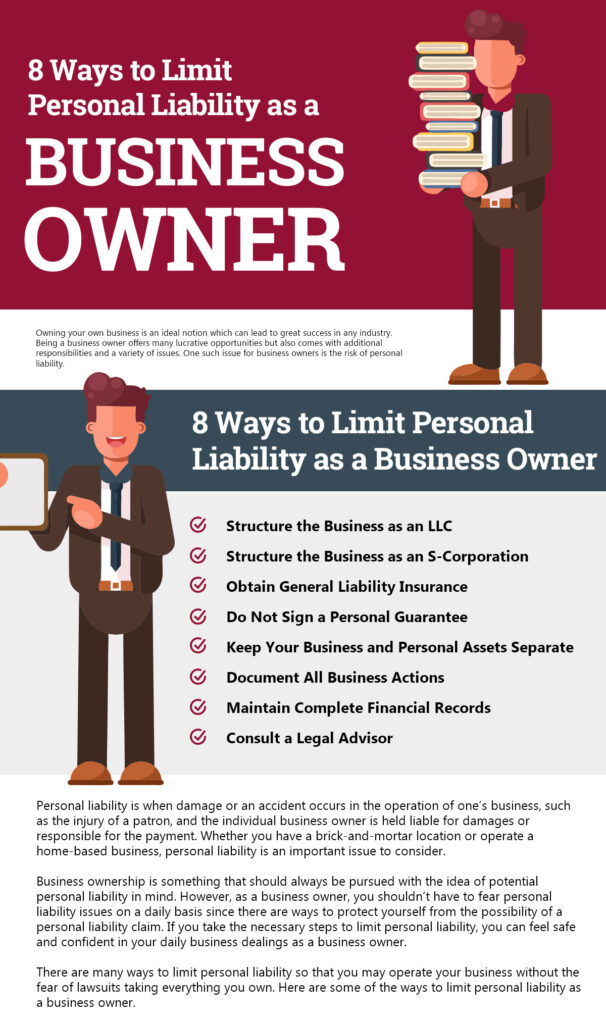
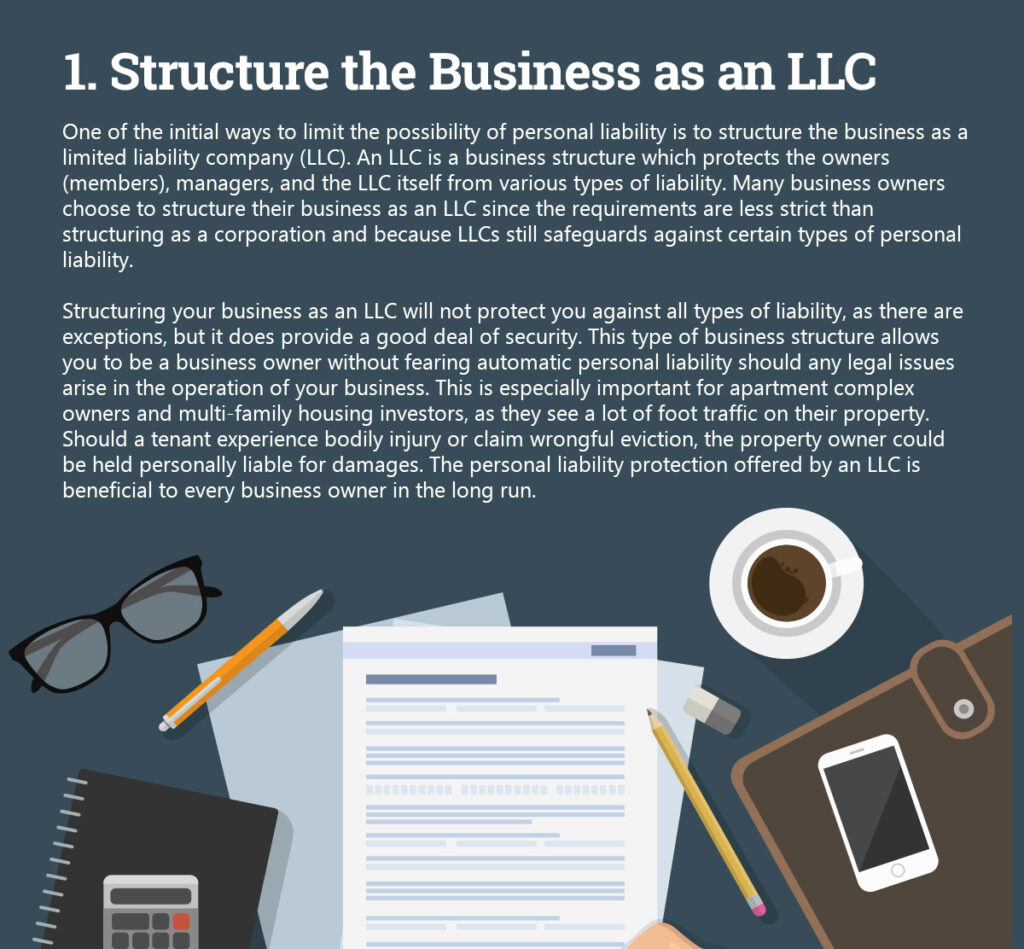
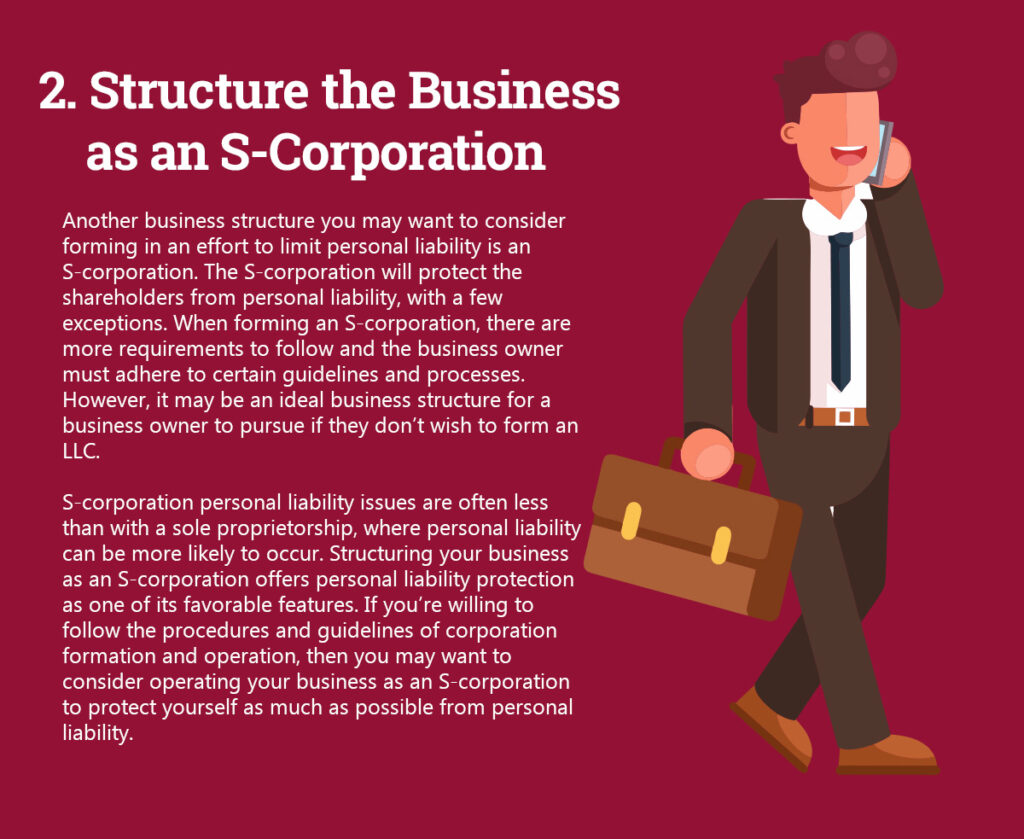
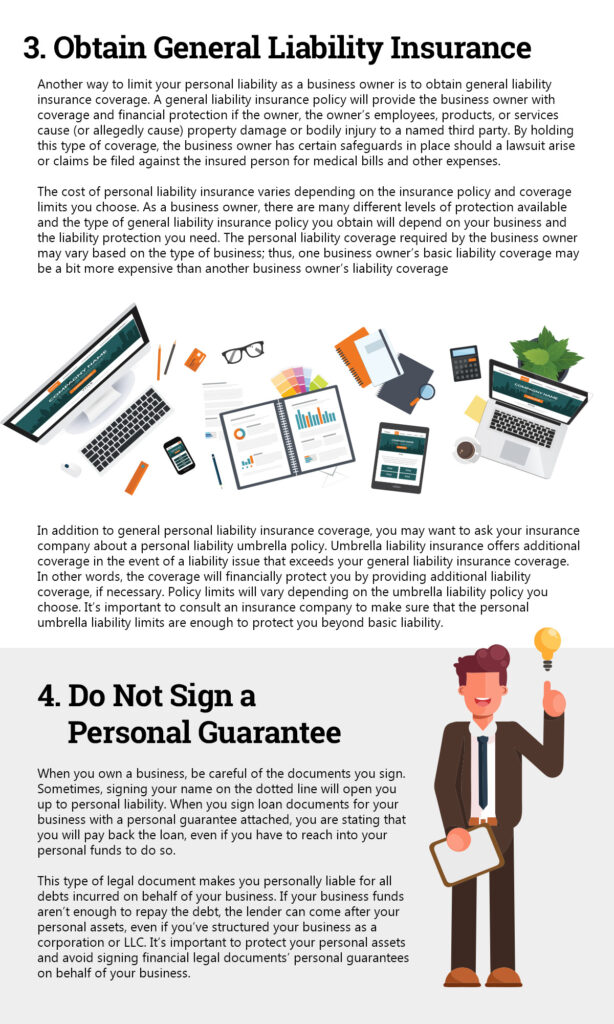
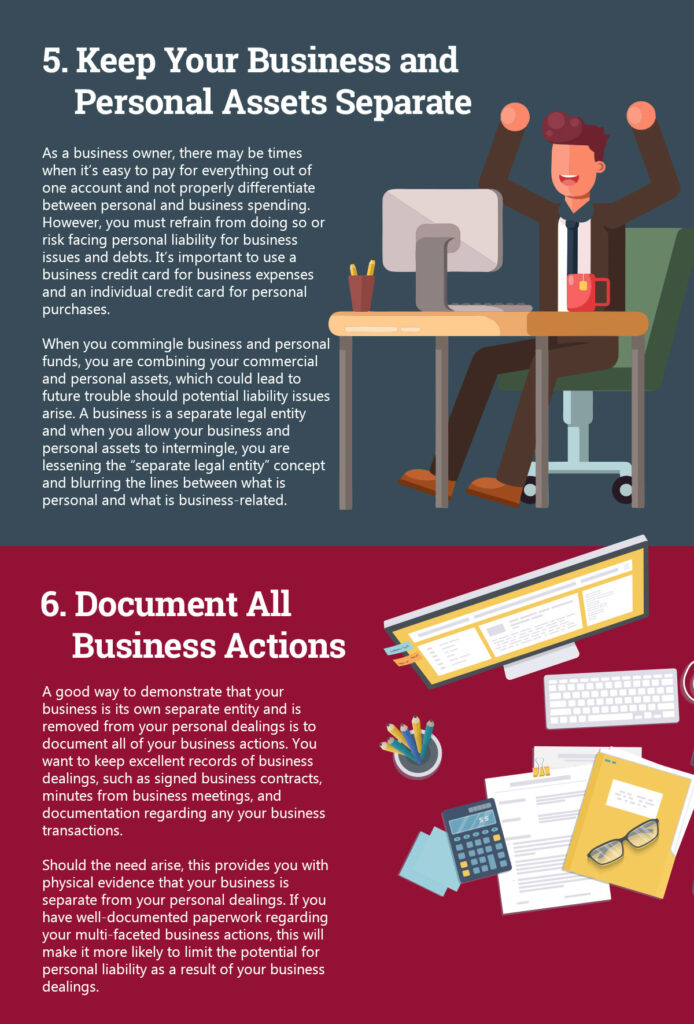
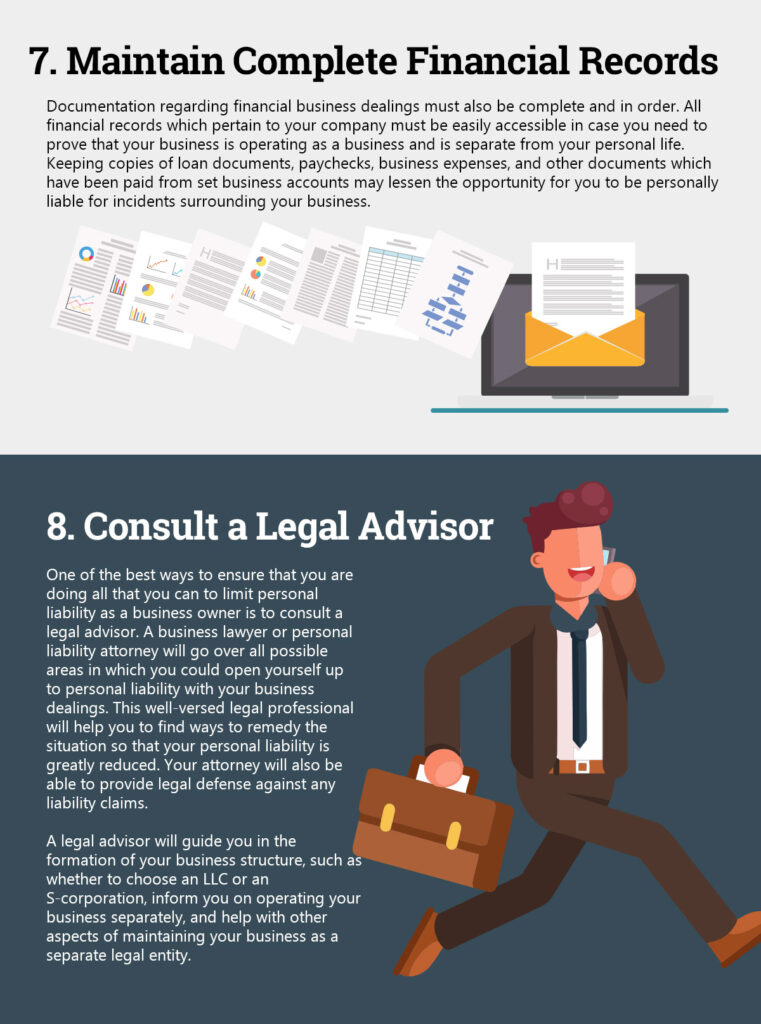
Share this Image On Your Site
3 Steps to Create an Invisible Investor Strategy
